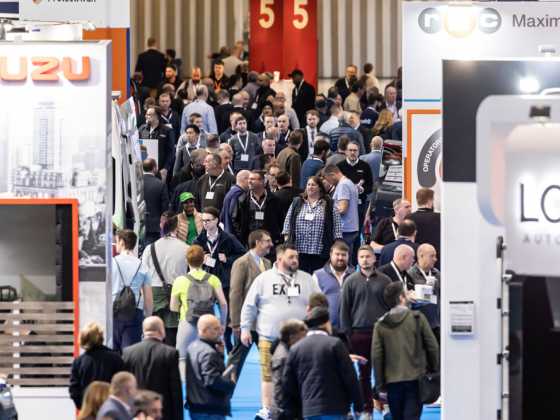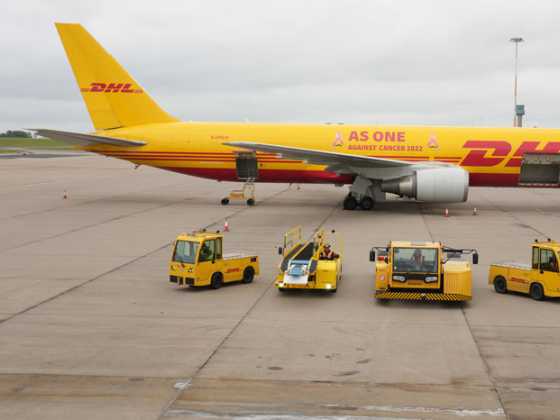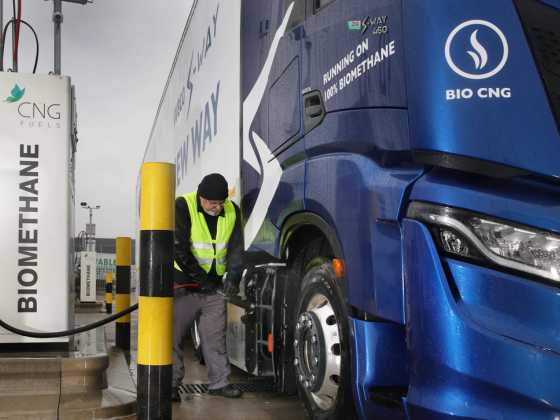Leasing panel: mobility & sustainable travel

With stringent air quality targets in place, it is part of the government’s agenda to take more vehicles off the road and promote sustainable forms of travel. Our panellists discuss new mobility trends and the future of fuels
The Prime Minister Theresa May said at the recent Zero Emission Vehicle Summit in Birmingham on 11 September that the way we commute, travel and have our goods and services delivered will change irrevocably.
She said: “Electrification, self-driving cars, delivery drones and electric cargo bikes will all help reduce traffic, improve journey times and safety, and free-up space in our towns and cities.”
With increasingly more stringent clean air measures being implemented in cities across the UK, it is part of the government’s agenda to take more vehicles off the road and promote more sustainable forms of travel.
Alternatively-fuelled vehicles and new mobility solutions can facilitate this as they offer different, cleaner options for people to get around.
Mobility means looking at the most efficient way of transporting people or goods – and this might not necessarily mean through car ownership.
Instead, a mix of transport modes could be used, such as car pooling, rental, car clubs, ride sharing, bike hire, public transport, and – in the future – even autonomous vehicles.
While fleet operations are still, in the main, quite traditional, things are beginning to change.
“The role of the fleet manager has changed significantly; fleet leaders are increasingly becoming mobility providers,” says Stuart Thomas from the AA. “Although the issue of vehicle ownership is one that will continue into the long term, the changing role of fleet managers is occurring now.”
Rob Mills from Daimler Fleet Management cautions that mobility schemes should be introduced to customers without completely moving away from a standard leasing model. He says: “Proactive lease and fleet management companies should be enhancing their fleet propositions with mobility solutions rather than considering them as an alternative, offering a flexible, rounded fleet policy where traditional leasing methods are regularly future-proofed.
“Leasing companies are perfectly placed to be able to assist fleet managers in introducing these solutions into their fleets, the key here being information. Having a suite of mobility solutions allows us to focus on the customer outcomes and objectives more clearly. You have to use the right tool for the right job.”
Mark Gallagher from Grosvenor Leasing agrees that leasing and fleet management firms are well placed to advise organisations “through a period of unprecedented change”.
He says: “A key role of any contract hire or fleet management specialist is to be looking ahead to what’s next and advising customers accordingly.”
Alternatively-fuelled vehicles fit well into the future mobility mix, but uptake is still relatively slow while the technology and infrastructure matures. However, with commitments from the government to end the sale of purely petrol and diesel vehicles by 2040, and penalties coming into place for polluting vehicles, the shift is unavoidable.
With this change occurring, keeping abreast of government policy and communicating this to customers is essential, believes Mark Gallagher, “particularly in unravelling what is just a political sound bite compared to actual policy,” he adds.
The benefits
So what are the benefits of fleet operators pioneering new technology, new mobility solutions and cleaner fuels?
According to Rob Mills, the benefits include “more mobile employees, cheaper travel costs, alternative travel options when traditional methods are under threat and unsustainable, and an all-round greener fleet.”
Rob continues: “Offering bespoke mobility solutions to employees will have a huge benefit for both the employee and employer. Efficiencies can be seen on the balance sheet, and importantly by providing a flexible and bespoke scheme built around the employee, there will be a positive effect on staff satisfaction as well as attracting and retaining top talent.”
Stuart Thomas highlights how technology has played a major role in transforming the overall management of fleets. He says: “With connected car technology, rather than having to go through the service history of every vehicle on the fleet, managers can use connected car technology to automatically alert them when a vehicle requires servicing or upgrades. Journey planning capability can then be applied to ensure the vehicle is serviced in the most convenient location. This not only saves the fleet manager time and reduces downtime for employees, it also keeps all fleet vehicles roadworthy in a manner which is entirely hassle-free.”
Technology has also been crucial in determining what fleets would be suitable to switch to electric and other alternatively-fuelled vehicles.
Mark Gallagher says: “Through Grosvenor’s online fleet management system, we have a snapshot of each clients’ fleet, vehicle types, age profile, how much it costs to run, its emission levels, downtime, fuel types and so on.
“We can therefore use that live data to then model and forecast what the picture would look like if the customer adopted alternative fuels for all or part of its fleet.
“We can also have detailed, vehicle by vehicle conversations with clients. For example, we can look at the live data for a team of field engineers and determine what vehicles are available either now, or on the horizon, that would drive down their emissions but still enable them to do their jobs.”
Making it the norm
What needs to happen in order to make new mobility solutions and greener travel become the norm?
Mark Gallagher believes that attitudes are a big barrier, because people are generally resistant to change. He says: “As with any marketing model for a new product or innovation, you have the early adopters and innovators who are prepared to try something new. Over time this grows until you achieve a critical mass and wide scale adoption. The early adopters will tend to accept the limitations of new technology, because they like to embrace new things and want to be first. That’s the same for electric vehicles – but when the infrastructure, range and vehicle choice mean electric vehicles can be used by the masses, that’s when we will see a wholesale shift towards them.”
Rob Mills agrees that people’s mindset plays a major part: “For mobility solutions such as lift sharing, car subscription services, it is still down to changes in attitude and the openness of the market. New mobility solutions will only become the norm if they are efficient, cost-effective and easy to use. Proactive lease and fleet management companies should work with their customers to illustrate the enhancements and advocate the benefits of trying something new.”
Infrastructure is another barrier, especially if you live in a rural area. Mark explains: “If you look at broader mobility solutions – for example car sharing, hiring a ride on an App, or city car schemes whereby you gain use of a vehicle for just a day or even a single journey, the infrastructure needs to grow before this can be used more widely. If you currently live in a major city, its easier to use these things – but even trying to get an Uber in many small rural towns is still impossible.”
Stuart Thomas believes that the mindsets of fleet managers need to be more data-driven in order to realise the safety benefits of technology. He says: “While increased access to data is allowing fleet managers to identify efficiency savings, its availability increases the liability and responsibility of fleet managers to ensure the vehicle’s health.
“Their mindset will need to become more data-driven. Our research, with BT Fleet, the Operational Fleet Insight report, revealed 74 per cent of fleets containing 100-plus vehicles use telematics, but only 33 per cent of them use it to reduce accident rates. This figure will have to be more like 100 per cent as liability shifts from driver to manager, with the spread of autonomous vehicles.”
According to DVSA data, since 2007/8, there has been a 20 per cent drop in under-25s learning to drive. It is these millennials that will have the right mindset to break the traditional ways of doing things. Mark says: “In terms of attitudes, the millennials who are coming into businesses as the new wave of workforce have a much more open mind towards ‘new ways of getting from A to B’ than the older generation, and I believe they will drive it.
“Quite simply, when the infrastructure, technology and attitudes all collide – that’s when it will fly,” Mark adds.
Future fleet management
With all this change on the horizon, what will fleet management look like in ten years time?
Rob Mills compares the changes to travel to the rapid rate of pace in technology over the last decade. He says: “If we look backwards a little over 10 years, the iPhone didn’t exist and 4G mobile internet hadn’t been invented. Compare this to where we are today and it’s easy to understand how drastically different the fleet industry might look in ten years’ time.
“The pace of change to some degree will depend somewhat on local governments early adoption of these advances as there has to be a concerted effort to improve infrastructure to allow people to choose these alternatives.”
Stuart Thomas believes that owning a vehicle will not be as important in the future. He says: “Vehicle ownership is already declining in some major cities. Car sharing and shared ownership services appeal to consumers for whom vehicle ownership would be unaffordable or impractical. Indeed, Europe represents over 50 per cent of the global car sharing markets, with 5.8 million users and 68,000 cars.
“This trend is set to trickle through to the fleet sector, as autonomous vehicles begin to become more prominent on our roads. The vehicles may still belong to fleets but will be driven by a range of different drivers, as and when they are required.”
With regards to the future of diesel, Mark Gallagher believes it still has a prominent role in fuelling vehicles, especially now that the government has confirmed that petrol and diesel hybrids will still be sold post 2040. He says: “I’m not convinced diesel will disappear from the landscape in the way many expect it to. Technology will continue to make diesel cleaner and for commercial vehicle operators it is likely to remain important.
“For these reasons I don’t believe we will be ‘all electric’ in a decade but much closer to zero emission from new vehicles arriving on our roads.”






